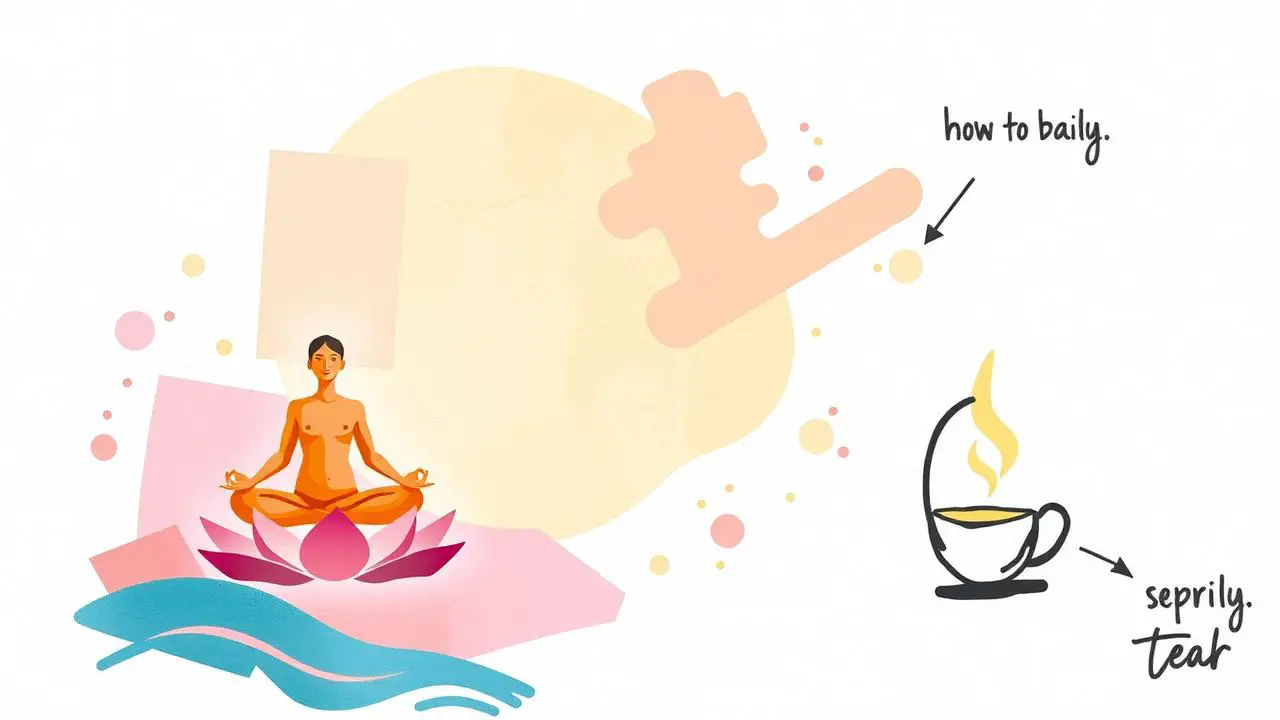You may be skeptical of the term “mindfulness”, thinking it’s just another trendy buzzword thrown around by self-help gurus and wellness bloggers. But the truth is, mindfulness has a solid foundation in science and has been proven to have numerous benefits for your physical and mental health.
In fact, mindfulness can be thought of as a muscle that can be trained and strengthened, just like any other muscle in your body. So, what’s the science behind this mindful “muscle”? How can you develop and strengthen it to improve your overall well-being?
The mindful “muscle” is a metaphor for the ability to focus and control one’s thoughts and emotions, which is developed through regular mindfulness practice. The science behind this muscle is rooted in neuroscience, which has shown that mindfulness can physically change the brain and improve cognitive functioning, emotional regulation, and overall well-being.
Regular mindfulness practice can increase the thickness of the prefrontal cortex, the part of the brain responsible for decision-making, attention, and emotional regulation, while reducing activity in the amygdala, the part of the brain responsible for fear and stress responses. This allows individuals to better manage their thoughts and emotions, leading to improved mental and physical health.
In this article, we’ll explore the definition of mindfulness and its benefits, the role of the brain in mindfulness, and the connection between mindfulness and stress reduction. We’ll also discuss the relationship between mindfulness and improved focus, as well as the impact of mindfulness on immune function.
Finally, we’ll provide techniques for developing mindfulness skills and offer tips on how to incorporate mindfulness into your daily life. By the end of this article, you’ll have a deeper understanding of the science behind mindfulness and how you can use it to improve your life.
The Definition of Mindfulness
Get ready to unlock the secrets of being fully present with this simple definition of mindfulness.
Mindfulness is the practice of maintaining a moment-to-moment awareness of one’s thoughts, feelings, bodily sensations, and surrounding environment. This practice has a long history and origin, dating back to ancient Buddhist traditions.
Over time, mindfulness has evolved and adapted into various forms, including mindfulness-based stress reduction (MBSR), mindfulness-based cognitive therapy (MBCT), and more. There are different types of mindfulness practices, but they all share the common goal of developing awareness and acceptance of present-moment experiences.
Some practices involve meditation and focused breathing, while others involve movement and physical activity. Mindfulness can be practiced alone or in groups, and can be integrated into daily routines and activities.
The benefits of regular mindfulness practice are numerous and well-documented, and we’ll explore these in the subsequent section.
The Benefits of Regular Mindfulness Practice
Regular mindfulness practice has numerous advantages that can positively impact our well-being and daily lives. Mindfulness has been shown to assist with emotional regulation, allowing individuals to better manage their emotions and reactions to stressful situations.
In addition, mindfulness can lead to improved relationships with others by promoting empathy and compassion towards them. Studies have also shown that regular mindfulness practice can lead to physical benefits, such as reduced blood pressure and improved sleep quality.
Furthermore, mindfulness has been linked to increased cognitive function and improved decision-making abilities. By dedicating time to mindfulness practice, individuals can reap the numerous benefits that can positively impact all aspects of their lives.
As we explore the role of the brain in mindfulness, it is important to understand the many benefits that regular mindfulness practice can offer. By incorporating mindfulness into our daily routines, we can improve our emotional regulation, relationships, and overall well-being.
The Role of the Brain in Mindfulness
By understanding the neural connections and pathways involved in mindfulness, you can gain a deeper insight into how this practice can impact your thoughts, emotions, and behaviors.
Mindfulness meditation has been shown to activate specific areas in the brain that are responsible for regulating attention, emotion, and self-awareness. This includes the prefrontal cortex, anterior cingulate cortex, and insula, which are involved in executive functions, emotional regulation, and interoception, respectively.
Moreover, the mind-body connection plays a crucial role in the benefits of mindfulness. When you practice mindfulness, you become more attuned to your body sensations, breath, and mental states. This awareness can help you regulate your physiological responses to stress and enhance your resilience to challenges.
By cultivating a non-judgmental, accepting attitude towards your experiences, you can reduce the impact of negative thoughts and emotions on your well-being. As you continue to practice mindfulness, you can develop a stronger connection between your mind and body, which can lead to a more integrated and balanced sense of self.
With a deeper understanding of the brain functions and the mind-body connection involved in mindfulness, you can appreciate the power of this practice in reducing stress and promoting well-being.
The Connection between Mindfulness and Stress Reduction
When we practice mindfulness, we can experience a sense of calm and relief from the overwhelming stress of everyday life. Mindfulness has been shown to have a positive impact on both our physical and emotional health.
Studies have found that practicing mindfulness can lead to lower levels of the stress hormone cortisol, which can improve overall physical health. In addition, mindfulness has been linked to improved emotional regulation, which can help us better manage our reactions to stressors.
Mindfulness can also help improve our ability to focus. By practicing mindfulness, we’re training our attention to stay in the present moment, which can help reduce distractions and improve our ability to concentrate.
Research has found that mindfulness can improve working memory and cognitive flexibility, two key components of focus. By incorporating mindfulness into our daily routine, we can not only reduce stress and improve our emotional well-being but also enhance our ability to stay focused and achieve our goals.
The Relationship between Mindfulness and Improved Focus
You can improve your ability to focus by incorporating mindfulness into your daily routine. Mindfulness involves being fully present in the moment and paying attention to your thoughts, feelings, and surroundings without judgment. By practicing mindfulness, you can reduce distractions and improve your cognitive flexibility and working memory, which are essential for productivity and decision making.
Studies have shown that mindfulness can improve focus and attention in both children and adults. In one study, participants who practiced mindfulness for eight weeks showed significant improvements in their ability to sustain attention and resist distractions. Another study found that mindfulness training improved working memory capacity and reduced mind-wandering, which is a common barrier to productivity.
By incorporating mindfulness into your daily routine, you can enhance your ability to focus and make better decisions.
When it comes to the impact of mindfulness on immune function, research has shown that mindfulness-based stress reduction can improve immune function in cancer patients.
The Impact of Mindfulness on Immune Function
Let’s explore how mindfulness can boost your body’s natural defense system and potentially protect you from harm. Research has shown that mindfulness practices can reduce inflammation in the body, which is linked to a variety of health issues, including autoimmune disorders.
Inflammation occurs when the body’s immune system responds to a perceived threat, such as an injury or infection. However, chronic inflammation can lead to damage of healthy tissues and organs. By practicing mindfulness, you can reduce stress and anxiety, which are known to trigger inflammation in the body.
Mindfulness also helps regulate the body’s immune response, which can lead to a stronger defense system. This can potentially protect you from harmful pathogens and other external factors that may compromise your health. Incorporating mindfulness practices into your daily routine can have a positive impact on your overall health and wellbeing.
As you can see, the benefits of mindfulness extend far beyond just improving focus and reducing stress. In the next section, we’ll explore some techniques for developing mindfulness skills that you can incorporate into your daily routine.
Techniques for Developing Mindfulness Skills
Get ready to enhance your mindfulness skills with these practical techniques that you can easily integrate into your daily routine.
Mindful breathing is a simple and effective technique that you can start with. It involves focusing your attention on your breath, noticing the sensation of the air moving in and out of your body. You can do this for a few minutes, several times a day. Not only does this help to calm your mind, but it also helps you to be more present in the moment.
Another technique that can help you develop mindfulness skills is the body scan technique. This involves bringing your attention to different parts of your body, noticing any sensations, tension or relaxation. You can start from the top of your head and work your way down to your toes. Taking a few minutes to do this can help you to become more aware of your body and any areas that may need attention.
Incorporating these techniques into your daily routine can help you to develop a mindful “muscle” that you can use anytime, anywhere to bring greater awareness to your thoughts, feelings, and physical sensations.
Now that you have learned some practical techniques for developing your mindfulness skills, it’s time to incorporate mindfulness into your daily life. By doing this, you can experience the benefits of mindfulness in all areas of your life, such as work, relationships, and health.
Keep in mind that mindfulness is not a one-size-fits-all approach, so experiment with different techniques and find what works best for you. Remember to be patient and kind with yourself as you continue to develop your mindfulness practice.
Incorporating Mindfulness into Your Daily Life
Now that you have learned about various techniques for developing mindfulness skills, the next step is to incorporate mindfulness into your daily life. Mindfulness is not something that should be reserved for a specific time or place; it should be a part of your daily routine. One way to do this is by practicing mindful breathing. Take a few moments each day to focus on your breath, noticing the sensation of the air moving in and out of your body. This can help you to feel more grounded and present in the moment.
Another way to incorporate mindfulness into your daily life is by practicing mindful eating. This means paying attention to the taste, texture, and smell of your food, and being fully present while you eat. You can also try to eat more slowly and mindfully, savoring each bite and noticing how it feels in your mouth. By practicing mindfulness in this way, you can develop a greater appreciation for the food you eat and the nourishment it provides.
| Mindful Breathing | Mindful Eating |
|---|---|
| Take a few moments to focus on your breath | Pay attention to the taste, texture, and smell of your food |
| Notice the sensation of the air moving in and out of your body | Be fully present while you eat |
| Feel more grounded and present in the moment | Eat more slowly and mindfully |
| Develop a greater appreciation for the nourishment your food provides | Savor each bite and notice how it feels in your mouth |
Incorporating mindfulness into your daily life may take some practice, but the benefits are well worth it. By being more present and aware in your daily activities, you can experience greater peace, joy, and freedom. So why not give it a try? Start small, with just a few moments of mindful breathing or eating each day, and gradually work your way up to longer periods of mindfulness. You may be surprised at how much it can improve your overall well-being.
How Does The Science Behind The Mindful “Muscle” Relate to Mindfulness in Plain English?
Understanding mindfulness practice involves recognizing the concept of the mindful “muscle,” which parallels the idea of building strength and resilience through regular practice. Just as physical exercise strengthens muscles, consistent mindfulness practice trains the mind to be more present and focused, leading to greater emotional balance and well-being.
Conclusion
You’ve now learned about the science behind mindfulness and the benefits it can bring to your life. Regular mindfulness practice can help reduce stress, improve focus, and even boost your immune function.
By developing mindfulness skills, you can incorporate this practice into your daily life and experience its positive effects. But beyond its practical benefits, mindfulness can also offer a deeper sense of connection and understanding of yourself and the world around you.
It can help you cultivate a sense of inner peace and contentment, even in the midst of challenging situations. So take the time to explore mindfulness and see how this “muscle” can strengthen your mind and enrich your life.




